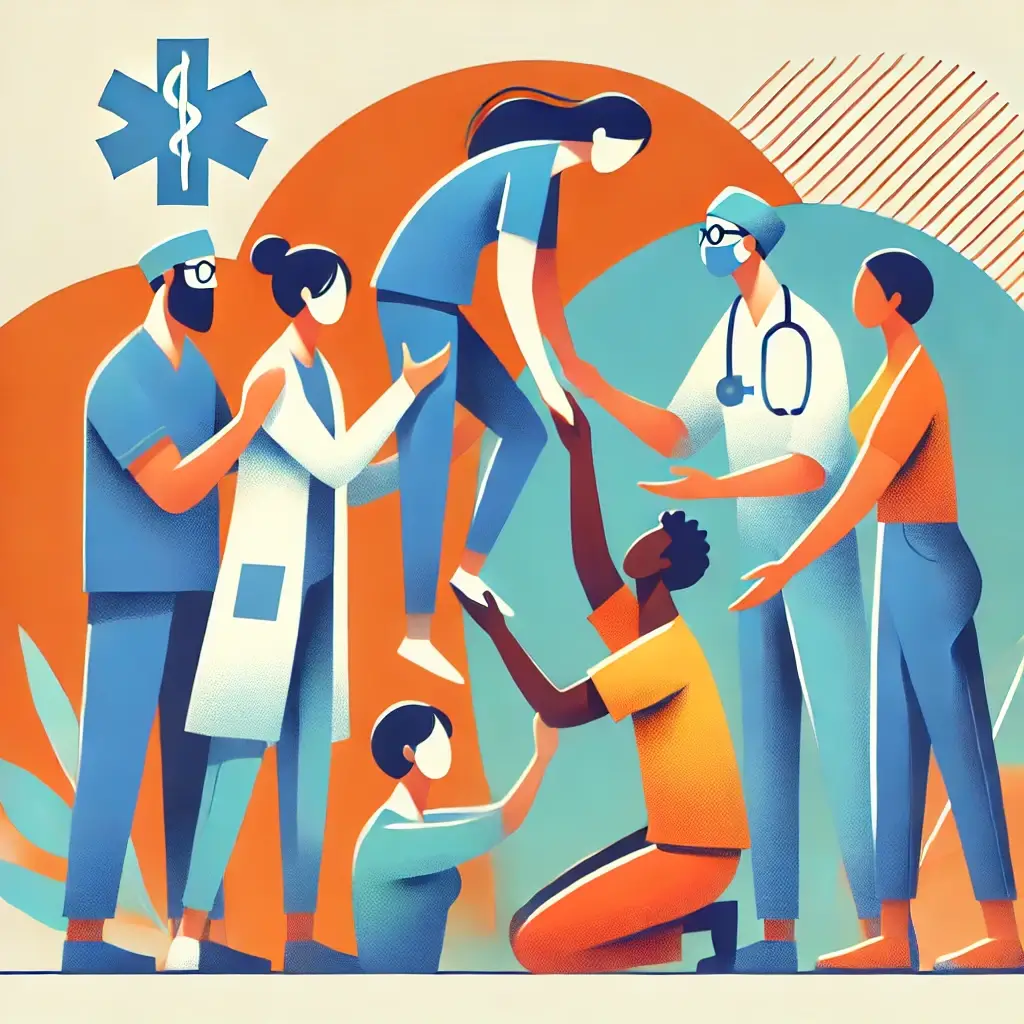The Power of Empathy in Patient Care
In the fast-paced world of healthcare, empathy is often overlooked, yet it remains one of the most critical components of patient care. Empathy—the ability to understand and share the feelings of another—has a profound impact on patient outcomes, satisfaction, and even hospital ratings. In this blog, we’ll explore why empathy is essential in patient care, how empathy training can make a difference, and how Empathable’s specialized program is transforming communication in healthcare settings.
Why Empathy in Patient Care Matters
Empathy is more than just a soft skill; it’s a cornerstone of effective healthcare delivery. Research consistently shows that empathetic care leads to better patient experiences, improved adherence to treatment plans, and even enhanced clinical outcomes. Here are four key reasons why empathy is vital in patient care:
- Improved Patient Satisfaction: A study published in Health Affairs found that patients who perceived their healthcare providers as empathetic were more satisfied with their care. This satisfaction directly correlates with higher hospital ratings and patient loyalty.
- Better Health Outcomes: According to a report in Patient Education and Counseling, empathetic communication can lead to better patient understanding of their conditions and treatments, resulting in improved health outcomes.
- Enhanced Trust and Compliance: Research in JAMA Internal Medicine highlights that empathetic interactions build trust, making patients more likely to follow medical advice and adhere to prescribed treatments.
- Reduced Burnout Among Healthcare Providers: A study in Academic Medicine revealed that empathy training not only benefits patients but also reduces burnout among doctors and nurses, creating a more positive work environment.
The Role of Empathy Training in Healthcare
Empathy doesn’t always come naturally, especially in high-stress environments like hospitals. That’s where empathy training comes in. Empathy training equips healthcare professionals with the skills to connect with patients on a deeper level, fostering trust and understanding.
For example, training programs often focus on:
- Active Listening: Teaching providers to truly hear and understand patient concerns.
- Nonverbal Communication: Helping staff recognize and respond to patients’ emotional cues.
- Patient-Centered Communication: Encouraging conversations that prioritize the patient’s needs and feelings.
How Empathable is Making a Difference
At Empathable, we understand the transformative power of empathy in healthcare. That’s why we’ve developed a comprehensive program designed to improve communication in three critical areas:
- Communication About Medicines: Miscommunication about medications can lead to serious consequences. Our program teaches healthcare providers how to explain medication instructions clearly and empathetically, ensuring patients understand how to take their prescriptions safely.
- Communication with Doctors: We help doctors build stronger connections with their patients by fostering empathetic dialogue. This not only improves patient trust but also enhances the accuracy of diagnoses and treatment plans.
- Communication with Nurses: Nurses are often the primary point of contact for patients. Our training empowers nurses to deliver compassionate care, making patients feel heard and supported throughout their hospital stay.
By focusing on these areas, Empathable’s program has a direct positive impact on hospital ratings. Patients who feel cared for and understood are more likely to leave positive reviews and recommend the hospital to others.
The Ripple Effect of Empathy
Empathy in patient care creates a ripple effect. When healthcare providers prioritize empathy, patients feel valued and respected. This leads to higher satisfaction, better outcomes, and improved hospital ratings. Moreover, empathy training can reduce burnout among staff, creating a healthier and more productive work environment.
At Empathable, we’re proud to be at the forefront of this movement. Our program is designed to equip healthcare professionals with the tools they need to deliver empathetic, patient-centered care. Together, we can transform healthcare—one empathetic interaction at a time.
If you’re ready to elevate your hospital’s communication and patient care, contact Empathable today. Let’s work together to create a healthcare system where empathy is at the heart of every interaction.
Sources:
- Health Affairs – “The Impact of Empathy on Patient Satisfaction”
- Patient Education and Counseling – “Empathy and Health Outcomes”
- JAMA Internal Medicine – “Trust and Compliance in Healthcare”
- Academic Medicine – “Empathy Training and Burnout Reduction”






